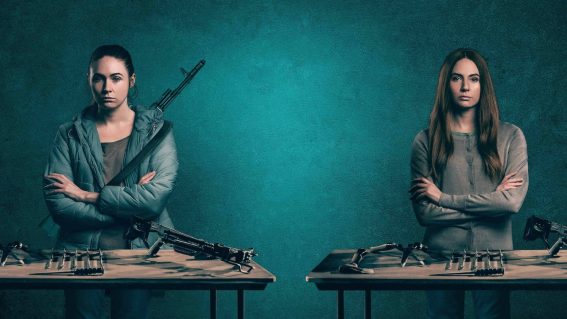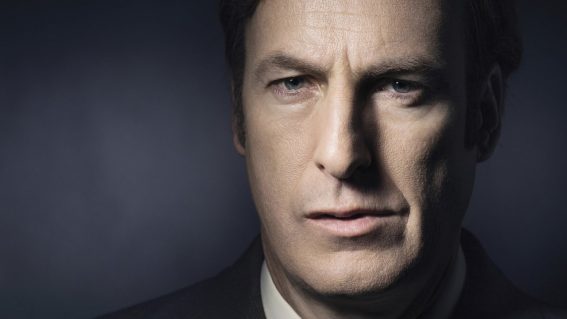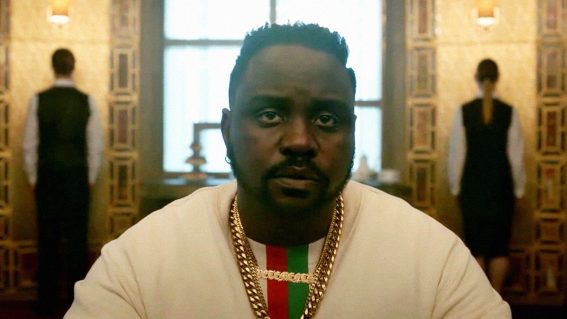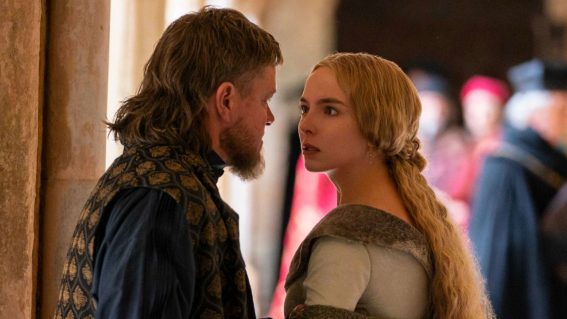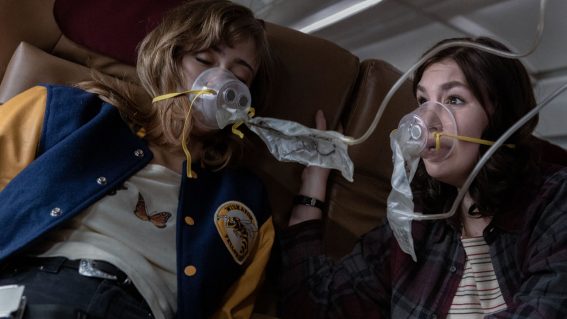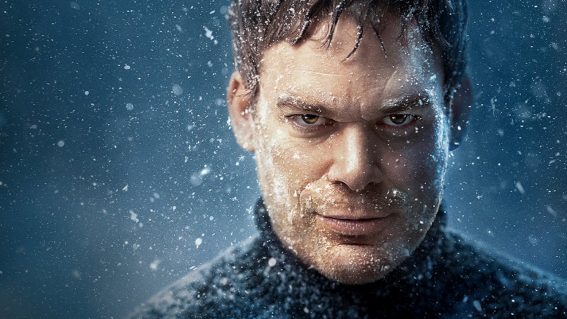Perry Mason, MVP of TV’s first Golden Age, returns in a new show
Matthew Rhys (The Americans) makes for a terrific, top-to-bottom revision of Mason.

Making its way to Neon shortly, a new take on iconic character Perry Mason—helpfully titled Perry Mason—sees two-time Golden Globe nominee Matthew Rhys (The Americans) explore the origins of the legendary criminal defense lawyer. Aaron Yap looks at the history of Mason, and explains what’s in store with this new incarnation.
For the uninitiated, Perry Mason might sound like some creaky, vaguely forgotten boomer show your folks caught reruns of when they were little. And it might also beg the question of why HBO would choose to revive this character—a criminal defense lawyer immortalised by Raymond Burr—from the telly’s dusty vaults for a shiny, expensive limited series. But for anyone who lived through that time with the show? Perry Mason was, unequivocally, a big deal. The MVP of the TV’s first Golden Age.
See also
* All new movies & series on Neon
* Everything coming to Neon in June
Created by pulp fiction writer and self-taught attorney Erle Stanley Gardner, Perry Mason has, rather impressively, endured for a hefty portion of the 20th century. While the show hit its stride during the Burr years with a nine-season run between 1957 and 1966 on CBS, the character has appeared across a number of mediums: film adaptations in the ’30s, radio serials in the ’40s, additional TV revivals in the ’70s and ’80s. There were even comic strips. To put things into further perspective, Gardner’s 82-book series remains the third best-selling of all time, next to Goosebumps and Harry Potter.
In a decade where comedies (I Love Lucy, Leave It To Beaver) and westerns (Gunsmoke, Have Gun — Will Travel) ruled the small screen, Perry Mason stood out as the first hour-long episodic crime drama on air. It was the Law & Order of its time—a formula-bound, black-and-white legal procedural with a heavy sleuthing component that effectively picked up where big screen noir left off in its dying days (Burr himself, and cast regulars like Barbara Hale and William Talman, were all noir veterans).
Brilliant, unorthodox—a truly invincible non-caped crusader—Mason almost never lost a case, and that was the way Gardner liked it. Not only would Mason infallibly clear the name of his client, who more often that not, was accused of murder, he would also finger the real culprit in court—all within the tight space of 52 minutes. Over the years, the show’s detractors, including judges and prosecutors, dubbed this somewhat skewed, unrealistic view of the justice system—particularly its amplification of the presumption of innocence—“the Perry Mason syndrome”.
But to his credit, Mason also helped usher the fight for human liberties into prime-time. Like the Hollywood courtroom dramas of its era (To Kill a Mockingbird, 12 Angry Men, Judgement at Nuremberg et al), it was a noble pop entertainment that rode the growing wave of civil rights activism. As Burr reflected in a 1987 interview, “When I started as Perry Mason, most of the minorities in this country didn’t know what they had. They didn’t realise our court system covered everybody.”
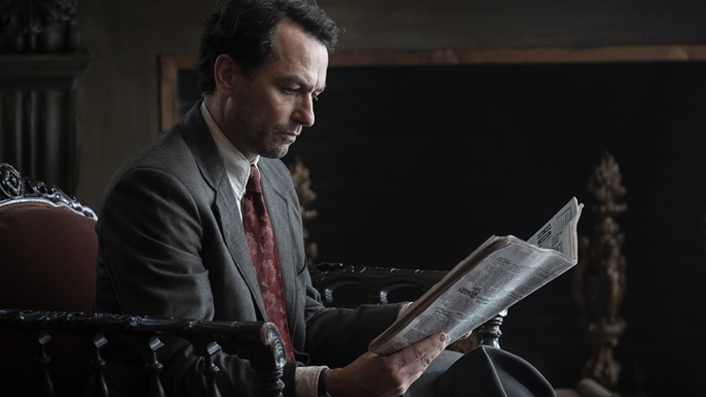
In HBO’s new, long-gestating prequelised incarnation, streaming here on Neon, it’s a case of the more things change, the more they stay the same. Everything we know about the Gardener-penned Perry Mason universe is challenged, but the world he inhabits—where institutional racism, police brutality and occupational sexism run rampant, and an economically ravaged society finds hope and escape in cinema, sport and religion—mirrors the increasingly tumultuous one we find ourselves living in right now. But it’s a big, grand ol’ gumshoe yarn at heart, luxuriating in a serpentine narrative that dials deeper into those L.A. noir tropes than ever before.
Because the CBS show was ruthlessly plot-driven, and each episode had to be neatly concluded, Burr’s Mason was always something of a cipher. There was no room, beyond his legal acumen and sneaky, oily charm, for the character to live and breathe. This 1932-set reboot by showrunners Ron Fitzgerald and Rolin Jones seeks to undo all that, colouring in Mason’s past with dark, chunky backstories, including a broken marriage, some land inheritance stuff and, most prominently, a dishonourably discharged stint in World War I which continues to haunt him. Some of it feels like overcompensation—not sure if 1917-sized scenes of trench warfare adds much—and says more about our cultural obsession with origin stories than anything else.
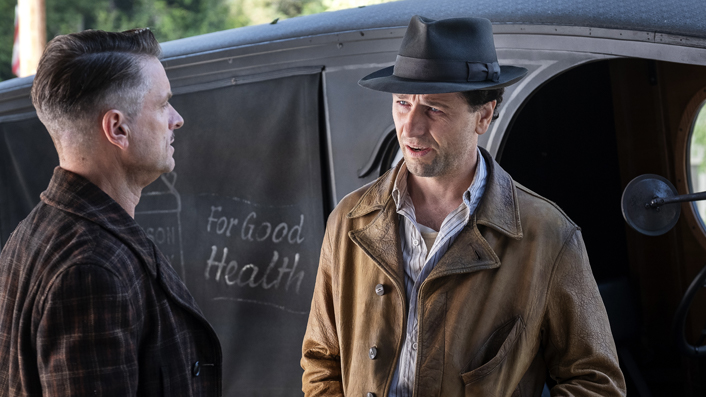
Matthew Rhys (The Americans)—who arguably does the best American accent by a non-American actor currently out there—makes for a terrific, top-to-bottom revision of Mason. Where Burr was hulking, domineering, and immovable, Rhys unapologetically plays Mason with a boozier, more crumpled, self-deprecating disposition. Paired with his wily partner Pete Strickland (the ever-reliable Shea Whigham), this pre-lawyer Mason is an opportunistic stain of a detective (“Fancy word for busy-body”), all hangdog eyes and five o’clock shadow, chasing the next crummy job—and the truth—with the same shaky desperation as he would a bottle of whiskey.
Whether purists might take umbrage with the creative freedoms Fitzgerald and Jones have taken remains to be seen, although it’s hard to imagine this inspiring the same level of geek-fury as, say, Watchmen. They’ve done the wise thing here, subverting the outdated social modes of the old show and weaving them into a larger thematic framework that tackles the role of race and gender within the oppressive grips of white male structures. Tatiana Maslany’s evangelical preacher Sister Alice resists a wall of silence erected by the gatekeepers of her congregation. Mason’s devoted secretary Della Street (Juliet Rylance)—previously the flirty, bubbly sidekick—is a punchier, more forthright and whip-smart player in the game, while Mason’s private eye Paul Drake (Chris Chalk), rewritten as an African-American patrol officer, captures the daunting weight of being a black cop in the Great Depression.
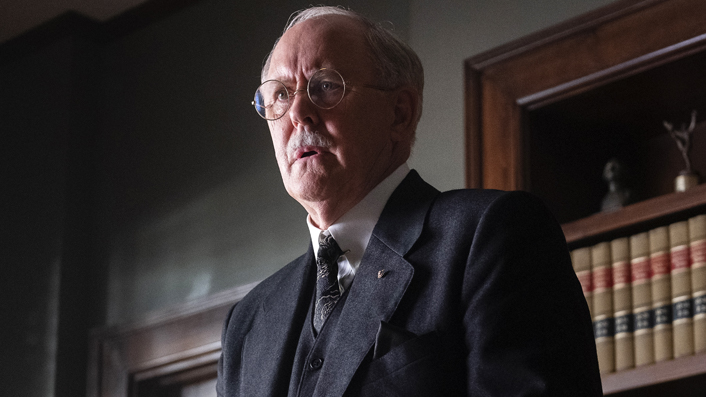
If it all sounds like a heavier Perry Mason that we’re used to, it can be, especially with the occasionally draggy runtimes. But it’s also a lot of seriously pulpy fun for noir-heads, and with a cast stocked with such great character support as this (I could watch John Lithgow and Stephen Root spar in legal tête-à-tête all day), it’s impossible to resist diving into each following episode with bingey relish.







